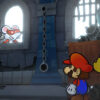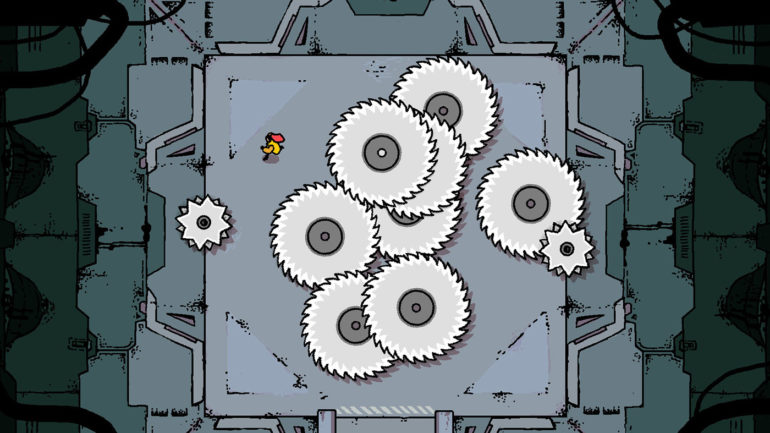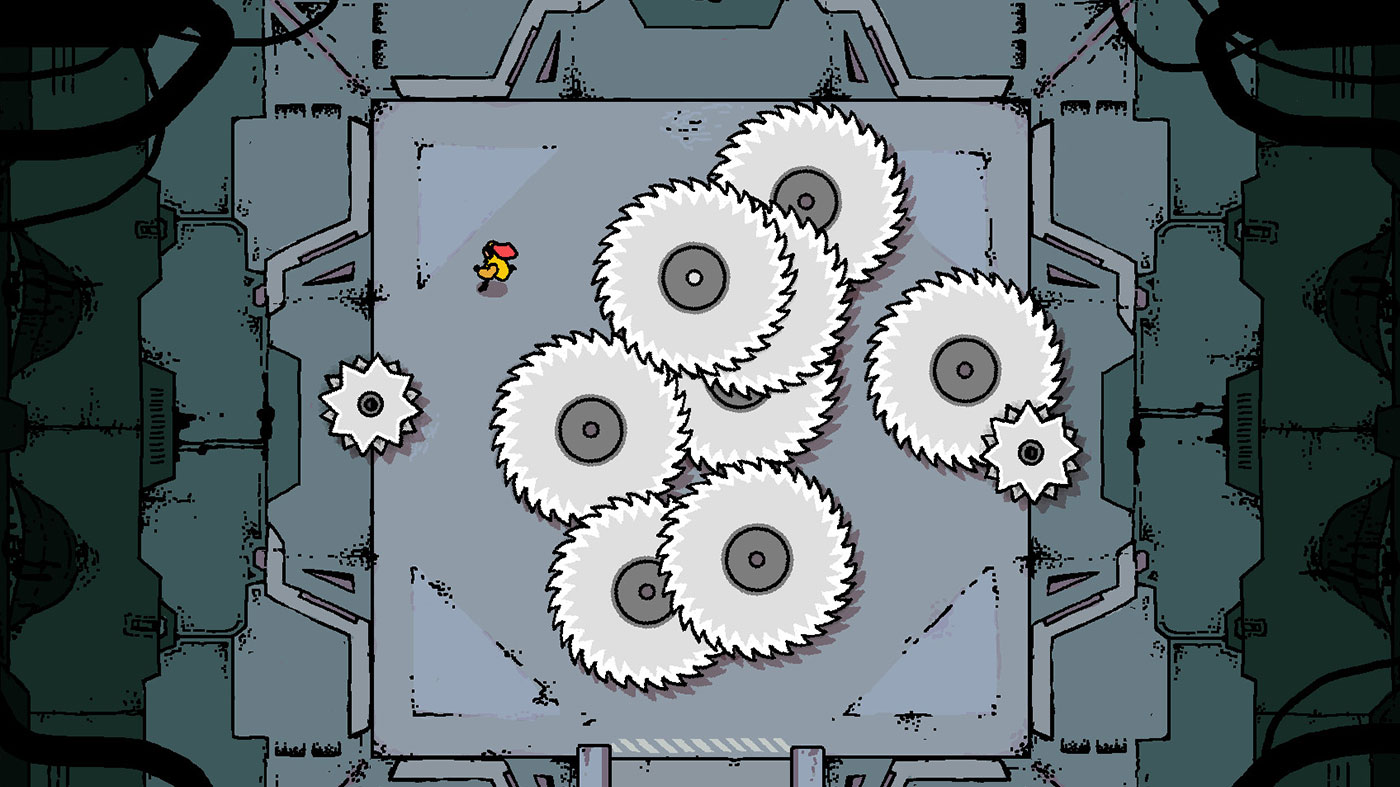It’s entirely likely you’d remember Minit. A charming little indie game that looked a lot like a regular overworld adventure inspired by The Legend of Zelda, though it quickly subverted those expectations, throwing players into a Groundhog Day-like existence where life is lived sixty seconds at a time. Disc Room similarly upends every notion you’ll settle on during your first five minutes with it, though it looks a lot like a shmup on the surface. Like Minit before it, death plays a vital role here in descending deeper into the world of Disc Room which demands patience as well as an open mind.
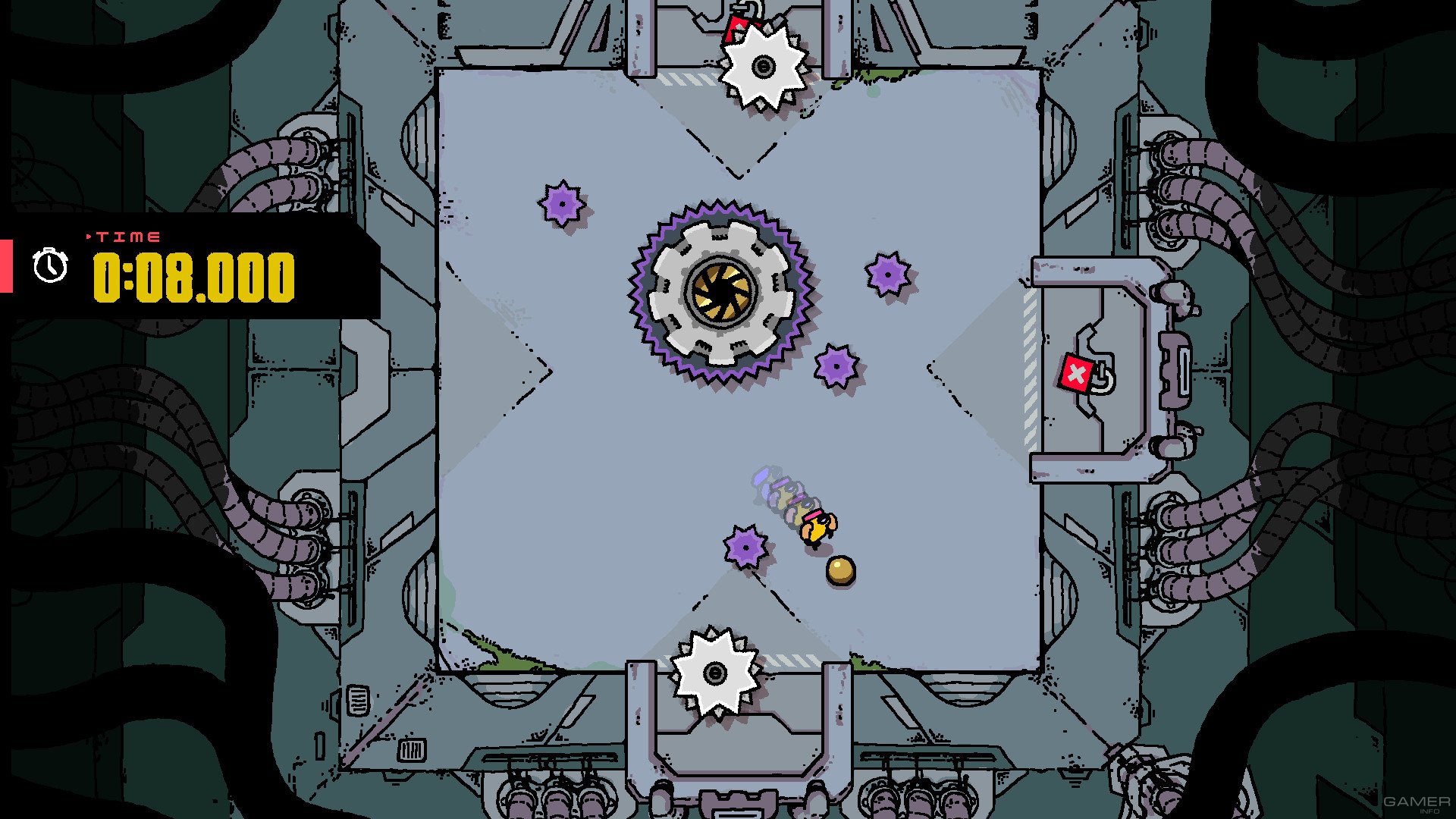
Like any good scientist, our protagonist is drawn to an alien disc-like ship orbiting the planet of Jupiter. Most would ‘nope’ it out of there but an inquisitive mind can also be a reckless one. Once inside, it’s discovered that the ship is more like a labyrinthian slaughterhouse and home to sentient saw blades that ricochet throughout each of the ship’s hundred-plus rooms. There’s a small sci-fi plot that unravels through a series of wordless comic panels as the game ticks along, though it struck me as a bit abstruse. That’s not to say there isn’t a fascinating subsurface well of lore that unfolds through other means, be it the reverent rooms adorned in gold that suggest these discs are subject to forces greater than simple motion or the data logs that mark each new, strange discovery, written by our scientist whose mind is being rapidly unstitched by madness. There’s an understated allure and a want to understand in Disc Room I’ve not felt since Fez.
Simply put, there isn’t much to the gameplay experience of Disc Room. Picture the evasive ballet of Geometry Wars coupled with the frantic bullet hell that is basically any shmup game on the market. Though our scientist starts out like any regular explorer, special abilities are gifted through death at the teeth of particular saws which offers a strange, speculative twist on the whole game. To be searching for discs of interest in the hopes they’ll unlock dormant powers and pave the way forward, all the while panicking to survive, adds a small layer to Disc Room’s progression that isn’t obvious at first. And like everything else left to player-experimentation, when it clicks it’s a great feeling.
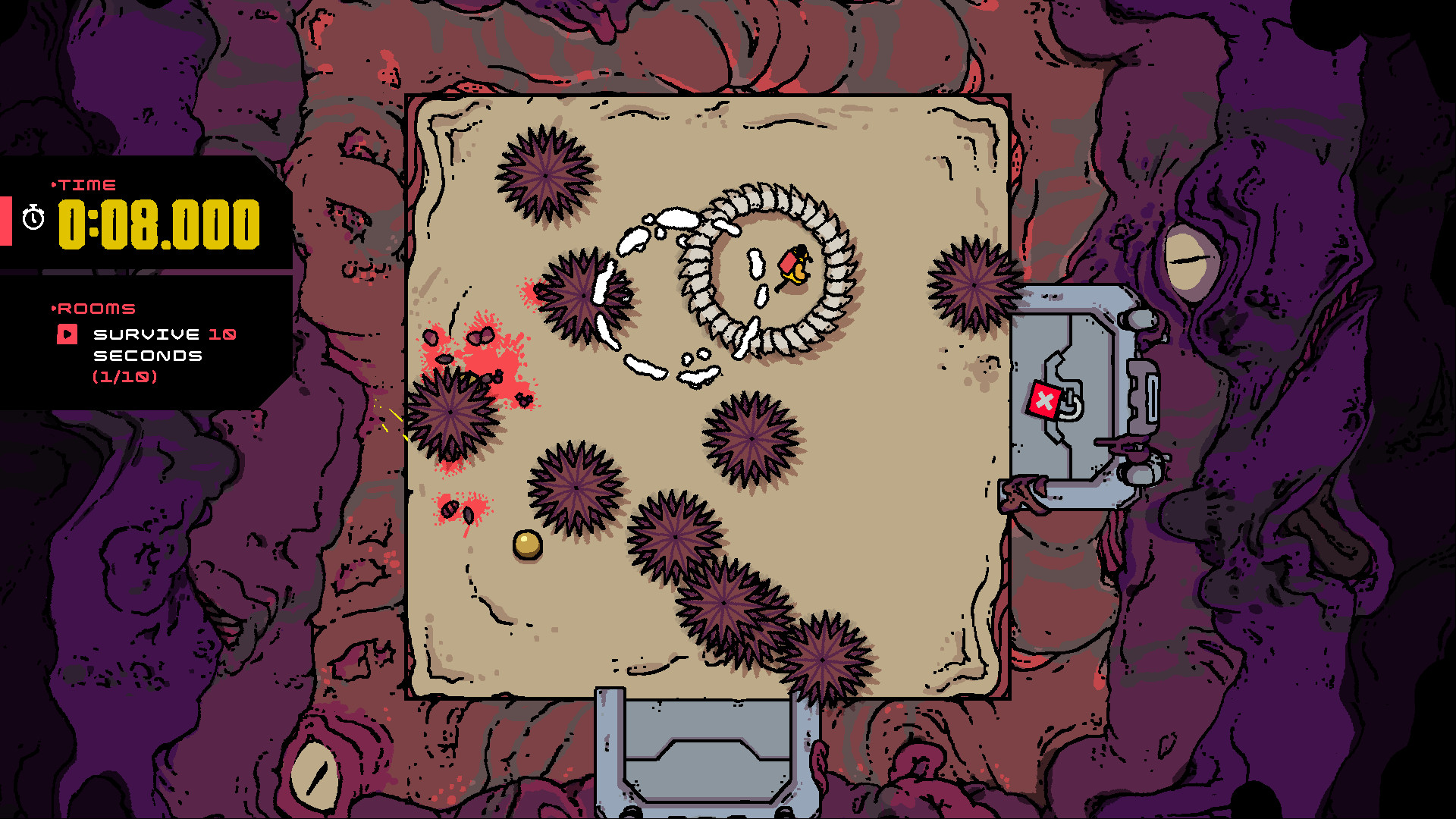
The entire game can be played using one button in addition to the directional keys, with the one-button being bound to whichever of the handful of abilities you’ve opted for. That said, the game is still terribly difficult during its late-run and death will visit you regularly. Instead of letting that gate out certain players, the developers have included a wonderful range of sliders that will let people tailor their experience to their capabilities.
I thought I’d seen it all as I rolled credits the first time on Disc Room but like its contemporaries, a hard mode unlocks and presents not only an even greater challenge but far greater value. The game isn’t terribly pricey considering it offers about one hundred unique rooms separated into biomes with starkly differing conditions as well as a lot of replay value through the leaderboards. Not to mention there are extra hardcore challenges for the certifiably mad and those who think they can smash through Disc Room in fifteen minutes.
Like other Devolver properties, Disc Room’s aesthetic is certainly unique. It isn’t hand-drawn in the same painstaking way Cuphead is, it looks cheap, crude and has a real ‘this art assignment is due tomorrow morning’ vibe that actually gives it a heap of soul and personality. The family tree of discs has many branches as well, with just over sixty to discover. They range from a disc you’d see spinning on your dad’s drop saw to toothy abominations made up of flesh and innards, though they all look terrific as the titular stars of Disc Room, of course. Enter the Gungeon alum Doseone lends his brand of thumping electronica to the game’s soundtrack and it makes for one of the catchier synth-wave scores I’ve heard this year, it’s as experimental as it is pulsating. In fact, the sound design, in general, is stellar in Disc Room, the uncomfortable murmurs of a ship that’s clearly alive in some capacity are unnerving to no end.
Disc Room seems so commonplace on paper, though when you sieve it through the minds of those behind Minit it becomes something exceptional. The farther it veers from conventional design, it becomes an all-consuming, bloody pursuit for answers that I’ve still not fully come to understand and I’m not sure I ever will. All I know is that Disc Room is an intelligent subversion of player expectation.
